Surprisingly challenging task for me in the herb garden today, where I was asked to prune a rambling rose to fit on an arch.
I had never done that and my colleague explained
we were cutting back 1/3rd of the older branches to the ground, then arranging the remaining ones on the arch and shortening laterals to 2/3rds.
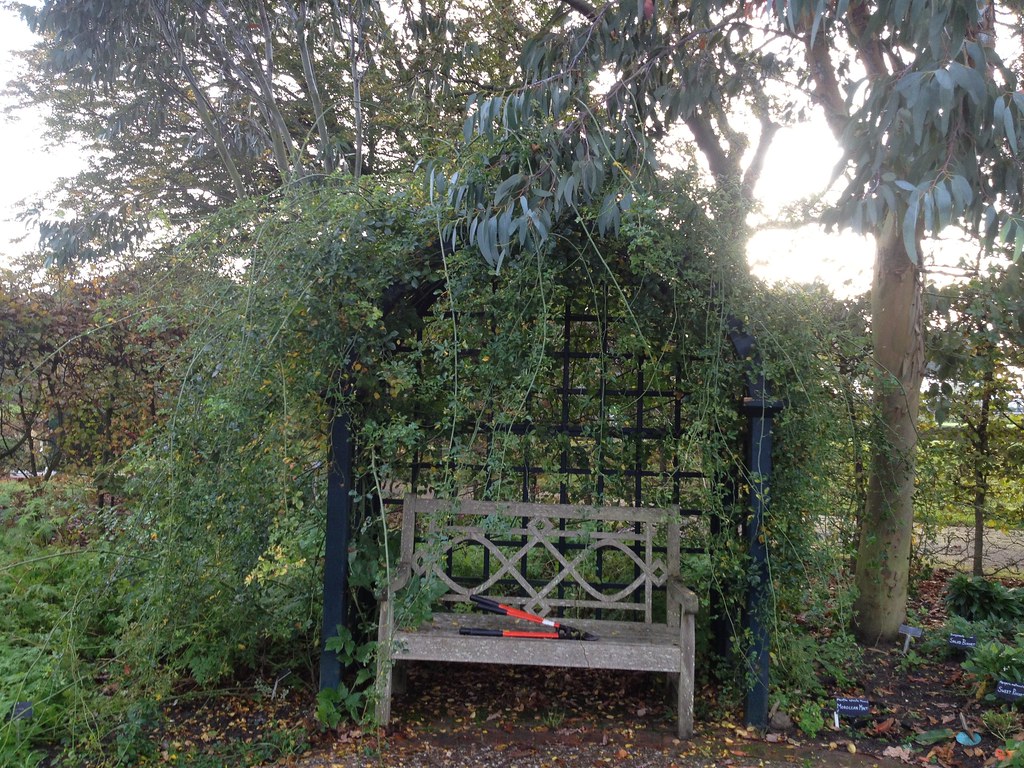 |
| Before starting |
First part of the task was removing all the old ties from the arch, and taking down the (rather heavy) branches so we could have a good look at them before choosing the ones we wanted to tie back.
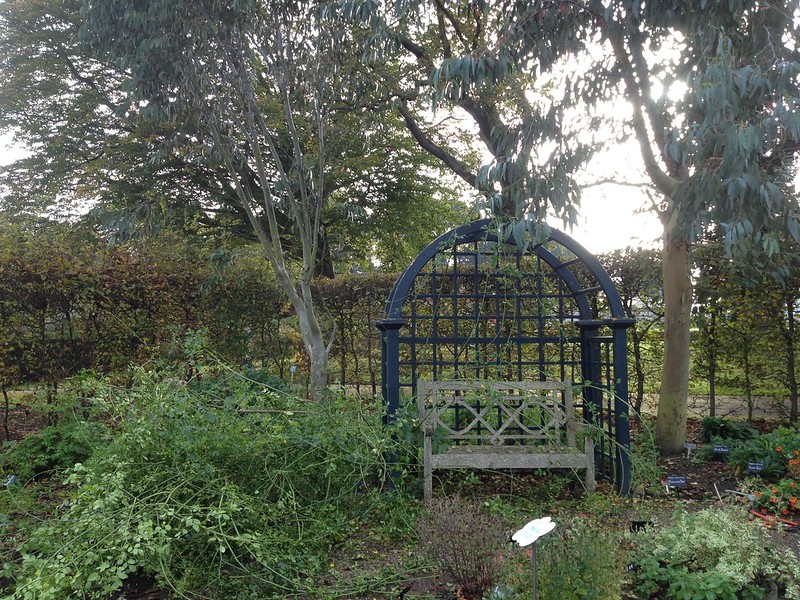 |
| All branches untied and spread out |
Once the branches were all on the ground, however, it looked to me very much like a tangled mess, and I found it so much more difficult to decide which ones were good to keep than I usually do: normally, by clearing around the plant and observing it from all sides, the branches that are to go "reveal themselves" to me (for want of a better expression). But here no clearing was possible and the plant had not much of a shape...
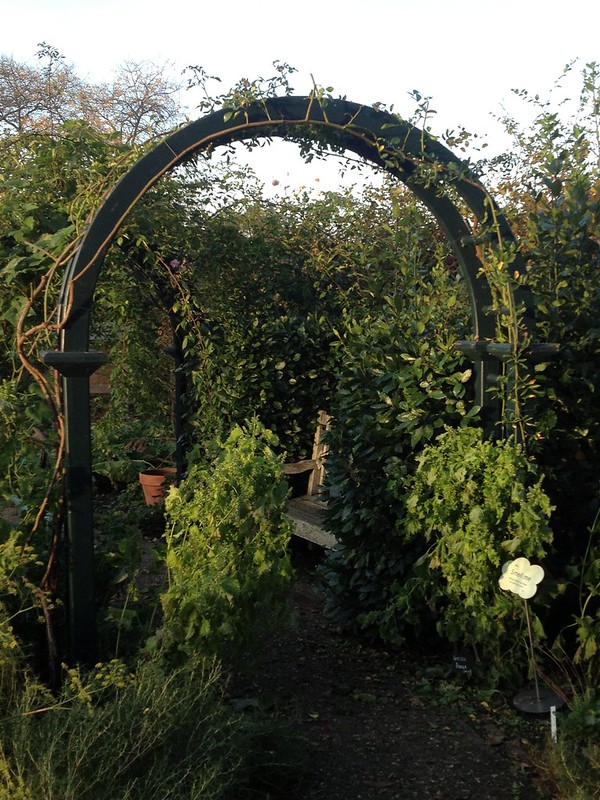 |
| A previously pruned rose |
My colleague had to leave me to it, with a previously pruned rose as my sample, and I proceeded with as much care as possible, tying back branches to the back of the arch first, some 15-20 cm apart. Then I had to tackle the top. I was told that the arch would look best by having some branches softening its front, so I worked towards creating the desired effect.
It looked to me the plant was rather top heavy, with plenty of laterals and sublaterals on a single stem, so the most challenging part was to reconcile the principle of keeping suitably shortened branches and allowing some distance between them to avoide rubbing (that might cause
dieback and provide access to other pests and diseases). By the end, I found what I thought was a good compromise, but I had cut more than the expected one third of the plant.
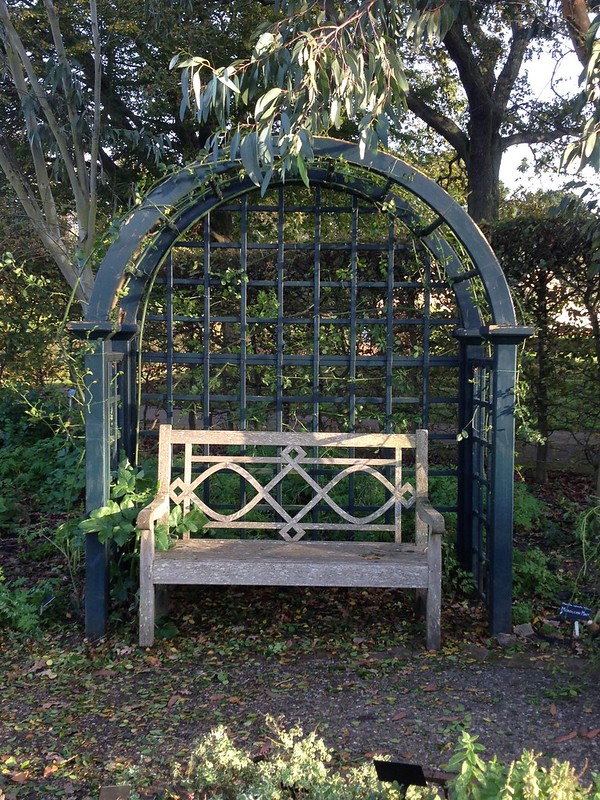 |
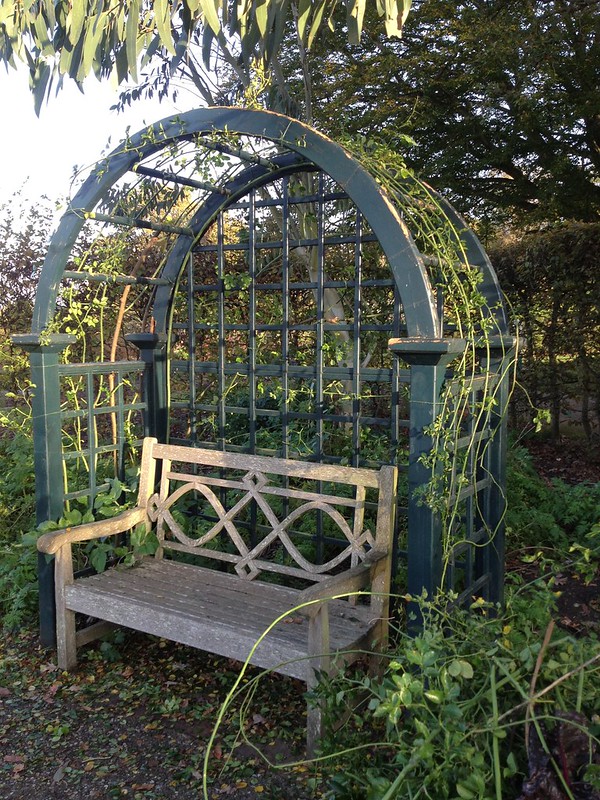 |
| The final pruned rose, tied back on the arch |
My colleague confirmed: this was much more than she was expecting to prune, which was a bit demoralising, especially as this was the last rose that needed pruning, and I would have benefited from pratising on other plants with her, to get used to this new to me shape of plant.
Roses usually respond well to hard pruning, and there were some vigorous new shoots in this one that I left, but I am a bit worried that the plant might put too much energy in vegetative growth next year, as opposed to flowering, which would be a pity as this is a very attractive spot for visitors.
Well, one can only wait and see...





No comments:
Post a Comment